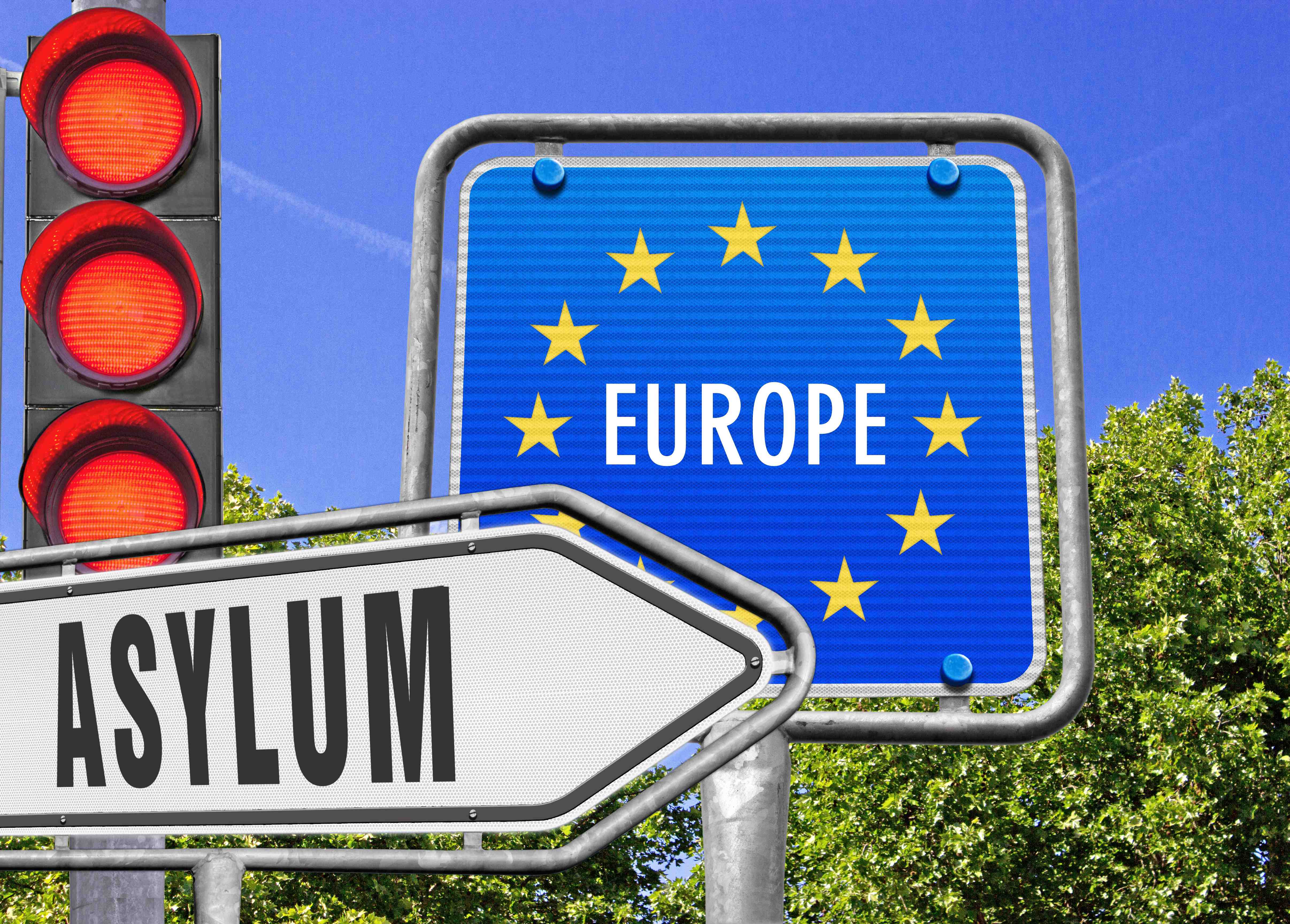Freedom and Duties, the Uninvited Guests
By Anthony de Jasay

After the Second World War, there was a very heavy movement of people. It was mainly from the East to the West in Europe, in part voluntary and in part compulsory, and it was toward host countries that were acting as new homes. This movement of well over 10 million people, which gradually came to an end by about 1950, gave way to a more moderate flow of immigrants that has continued to the present day. In the post-war period, up to 300,000 immigrants per year had been coming to England from South East Asia; about 20,000 to France, mainly Arabs but also other African emigrants; and 50,000 mainly Turkish people to Germany, with smaller numbers distributed in the Scandinavian countries and the Iberian Peninsula.
Toward these movements, the countries of origin and host countries alike long had a somewhat ambiguous attitude. There have been periods when the influx to the host countries seemed a little too much, causing restrictive measures. But all in all, the infiltration went on more or less as the immigrants wished it, and the receiving countries accepted it as a fact of life.
Fast-forward to the present, when immigration from Africa, the Middle East, and remoter areas like Afghanistan, having begun gradually, has suddenly picked up speed. Civil wars within Arab and African countries, mainly involving Shiites and Sunnis, has made a significant part of the population ready to flee these war zones and migrate toward Europe.
The war in Syria alone between a dictatorial government and various opposition groups has mobilized four million people. Some have stayed nearby in neighbouring countries such as Lebanon, Jordan, and Turkey, but many began making increasingly for Europe after being shown the way by professional gangsters who made fortunes out of their distress. By 2014, Middle Eastern and African immigration amounted to more than a million persons, with a probability of the total reaching 1.5 million in the current year.
Three main roads were used, with the North and West Africans coming in via Spain, emigrants out of the rest of the continent passing through Libya to the Mediterranean and Italy, and most of the Middle Eastern emigrants coming in from Turkey to Greece and across the Balkans into Central Europe. The receiving countries accepted this flow with attitudes ranging from increasing ill-feeling to enthusiasm, with the inhabitants of the most enthusiastic country, Germany, changing their attitudes almost by the day.
Public opinion, even the part that used to take immigration over several decades as a fact of life, has now become profoundly excited by this strong inflow—excited but also sharply divided. Some Europeans do not wish to accept huge crowds of uninvited guests; others have felt it their duty to accept and help them. It is these two attitudes—sometimes found in the same person—that it would be helpful to examine with a sharper eye.
Consider the official attitude toward migration. The 1957 Treaty of Rome, which allowed freedom of movement within the European Union, distinguishes immigrants who come to save their basic liberty and life from those seeking a better life in a welcoming economy. The former are “asylum-seekers,” the latter “economic immigrants.” The authorities, such as the Home Office in Britain or the Ministry of the Interior in France, determine whether the new comers are asylum-seekers. This examination may take many months or even years if the victims rely on self -help or rely on a sharp lawyer. In France, after a more or less protracted examination, only about 15 percent are refused asylum-seeker status. Theoretically, these persons must be repatriated, but only a very small proportion are. The remaining “asylum-seekers” as well as the economic migrants are sooner or later given legal resident status.
Until the sudden increase in immigration recently, which portends an even sharper rise in the near future, public opinion was only mildly hostile to immigration. There were those who feared its effects on unemployment, on the use of public services, and on the environment. Others professed optimism about the effect on economic growth, because immigrants were judged to contribute more to national output than they consume in scarce public goods and lodgement, even allowing for their state-dependent families. Dozen of such comparisons have been made on either side of the argument. A neutral and authoritative study by the World Bank judges that immigrants add to national output in the same proportion as they add to the population itself, so that income and welfare remain the same on a per head basis. Natural output increases (Germany may be reassured despite having to rely on a supplement of immigrants to compensate for their declining native population) but output per head remains as before.
Mass immigration, however, is not only a matter of economic input and output, but also brings with it the transformation of a society and what people feel about that society. Hungarian Prime Minister Victor Orban has declared that his country does not look forward to a 30 percent Muslim population in a few years, given that Hungary has almost no Muslim inhabitants today. The Slovak government announced that it will accept mass immigrants of “Christians and atheists” (making it very clear that it does not welcome Muslims). Public opinion polls throughout Europe avoid the question about fear of Muslim immigration for obvious reasons of good manners. Their questions about mass immigration yield mainly negative responses notwithstanding this avoidance of questions relating to race or religion.
How can one see the situation clearly amid these contradictory practices and opinions?
“Freedme has many definitions.”
Freedom has many definitions. None can be successful unless it also incorporates some concept of rules. Therefore, we could begin by saying that freedom is an act that a person can carry out or enjoy, or permit another person to carry out or enjoy, if the act does not involve the breach of a rule which is efficiently enforced. The original person can, for example, use a house and let his family and perhaps also his invited friends use it as long as this does not violate an efficiently enforced rule that would not allow it. A stranger cannot move into this house because his act would be a violation of the rule which only permits the use of the house by the first person concerned and those whom he invites to it. This definition of freedom does not allow such actions of strangers, unless it is by the permission of the person or persons who hold the freedom in question.
Let us here generalize beyond the individual. The freedom here defined can also be applied to groups of persons, for instance by reserving the use of a school to selected children of selected parents, or the services of some public utility reserved for a group of residential users. Again this definition of freedom does not allow strangers to use this freedom unless it is by the permission of the person or persons who have the freedom in question. If the Hungarian government acts in reasonable harmony with its population, it has the freedom to erect a fence on its border with Serbia to prevent uninvited guests from coming into the country without selected entries supervised by a police force, or indeed not at all. To blame Mr. Orban, the chief of the Hungarian government, for doing this is a very weak conception of freedom.
Duty differs from freedom and in many respects actually contradicts it because it lacks the conception of a rule and its enforcement. A person, a selected group or perhaps a consensual government can act and invite uninvited guests to become invited. The duty is voluntarily extended, but cannot be extorted or enforced. There is no rule to enforce it, only the milk of human kindness.
For more on these topics, see Anthony de Jasay’s previous Econlib articles, Irresistible Immigration: The Lampedusa Dilemma, December 3, 2013 and Immigration: What is the Liberal Stand?, August 7, 2006. See also Immigration, by George Borjas in the Concise Encyclopedia of Economics
and Is There a Right to Immigrate?, by Bryan Caplan, EconLog, April 20, 2009.
Apart from occasional moments of good will, which bring out human kindness in all populations, a majority of people seldom exercise substantial acts of duty to help others. Instead, a government, an elite, and any other minority that has the destiny of migrants in its heart, will exact involuntary kindness from the majority, so that everybody does his “duty” to help the victims of the people who have been left homeless.
Freedom and duty seem to both contradict each other and coexist in modern politics. The situation is hardly satisfactory. A solution that favors freedom or duty, one that would accord with different historical conjunctures, would be desired but cannot be imposed. Answers are by no means easy to come by. Readers may be led by this discussion to try and think of ways of extinguishing civil wars, or calming rivalries within Islam (or at the very least to contemplate the boundless dishonesty of most African governments, their ministers and generals, which is what leaves so many Africans and Middle Eastern peoples with the conviction that to get some chance of a decent life in their own country would be impossible). This however, is too nice a dream to go to sleep with.
*Anthony de Jasay is an Anglo-Hungarian economist living in France. He is the author, a.o., of The State (Oxford, 1985), Social Contract, Free Ride (Oxford 1989), Against Politics (London, 1997), and Justice and Its Surroundings (Indianapolis, 2002). His most recent publications include Political Philosophy, Clearly (Indianapolis, 2010) and Political Economy, Concisely (Indianapolis, 2010). His next volume, Economic Sense and Nonsense: Reflections from Europe, 2007-?2012 (a volume in The Collected Papers of Anthony de Jasay), edited and with an introduction by Hartmut Kliemt, is forthcoming from Liberty Fund.
The State is also available online on this website.
For more articles by Anthony de Jasay, see the Archive.

